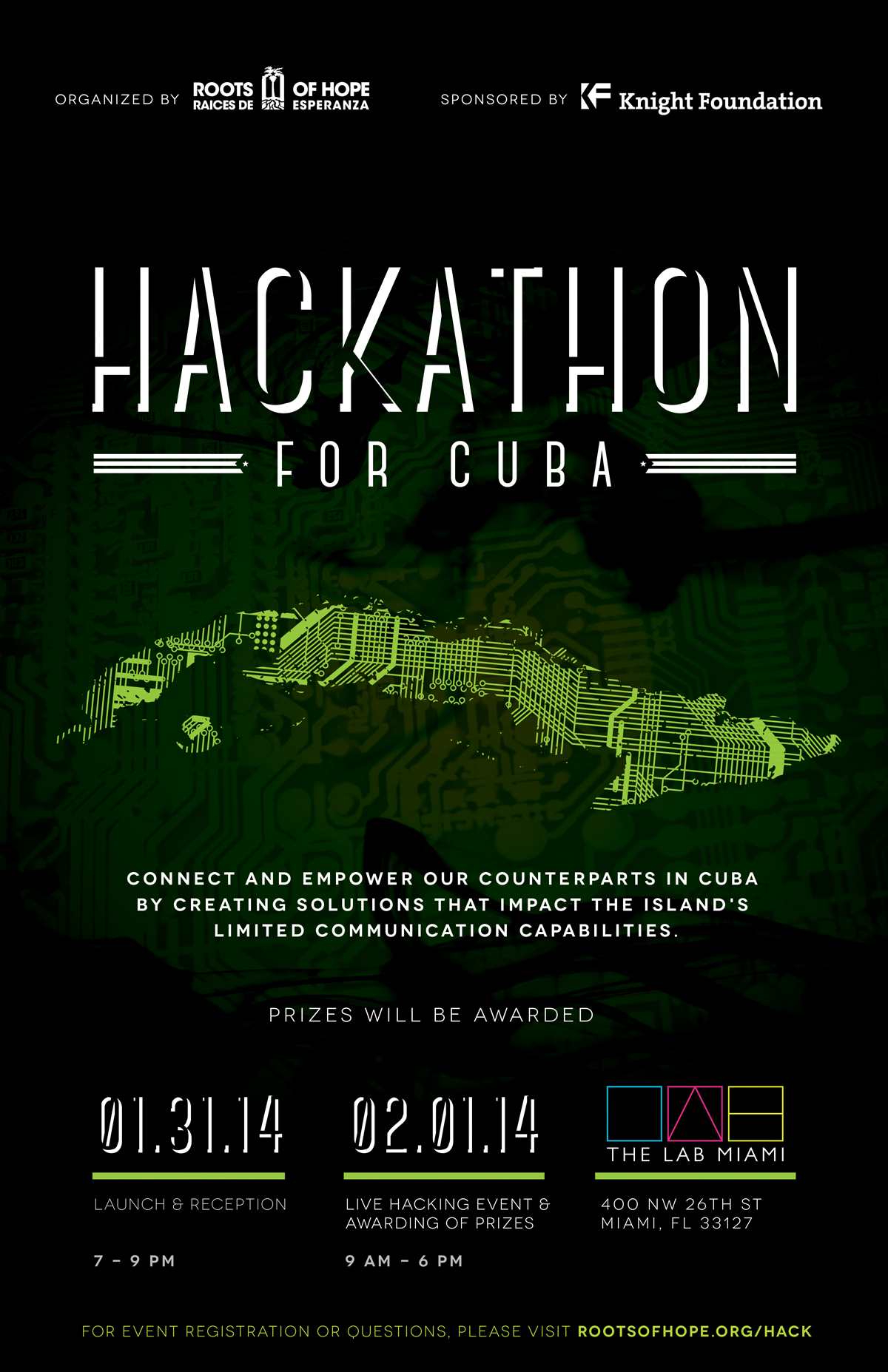
Miami hackathon seeks to improve communications for Cuba residents
Knight Foundation supports Roots of Hope to promote the exchange of ideas through its Hackathon for Cuba, an event slated for Jan. 31-Feb. 1 at The LAB Miami. Below, Natalia Martinez, chief information and technology officer at Roots of Hope, and Lisette Garcia, director of communications, write about the origins of the event.
By Natalia Martinez and Lisette Garcia
Cuba is often referred to as the “island of the disconnected.” The Internet penetration rate on the island is less than 5 percent, the lowest in the Western Hemisphere, and access is both severely restricted and expensive. In this context, a younger generation of Cubans is constantly searching for avenues to connect with each other and the outside world by circumventing the obstacles they face. That’s the motivation behind our first Hackathon for Cuba.Related Link
“Miami hackathon seeks to improve communications for Cuba residents” by Maria de los Angeles
We’ve heard many stories that showcase the sad reality and innovative spirit of the Cuban people as they deal with the limitations. Some Cubans position themselves close to libraries and universities to gain access to their restricted wireless networks. Many share data – countless pages of information, music and movies – stored on USBs, and others modify their cellphones to download applications, even if their use is diminished without Internet access.
Our visits have confirmed what we’ve heard and reinforced that we all share a fundamental need to connect with each other and to be informed about the world around us.
Last fall, we facilitated a tour of major companies in Silicon Valley with renowned Cuban blogger Yoani Sanchez and representatives from several Miami organizations, including Knight Foundation. During our visit, we met with Twitter Founder and CEO Jack Dorsey, a particularly poignant moment because Yoani credits “that little blue bird” with granting her a voice as well as protection.
A remarkable moment occurred during our conference in San Francisco. While discussing the limitations faced by Cubans in using Twitter – which works as a one-way SMS platform there – Yoani mentioned how small changes could signify a dramatic improvement in usage and connectivity.
She drew on a specific comparison with Microsoft Outlook, primarily as a tool that allows users to download content and work with it offline, thus allowing communication to occur while requiring a very short Internet connection. In response, Jack suggested that this kind of tool does not need to wait for a centralized response from Twitter or other similar companies, but can be created by developers using Twitter’s API and available code.
All of us in the room realized that the time had come for open source collaboration around solutions to help Cubans overcome their barriers to communication. And thus, this first-ever Hackathon for Cuba – a project of Roots of Hope with the support of Knight Foundation – was born.
Many of the developers and designers volunteering their time for the hackathon were born in Cuba and emigrated just a few years ago. We’ll draw on their talents and their perspectives to provide a unique forum for dynamic problem solving that results in smartphone applications and other solutions. But we also hope that the event solidifies an ongoing community-wide conversation about the role of technology in Cuba and, in particular, the empowerment of a younger generation of Cubans.
The Hackathon for Cuba is slated for Jan. 31-Feb. 1 at The LAB Miami. Please visit www.rootsofhope.org/hack for more information.
Recent Content
-
Community Impactarticle ·
-
Community Impactarticle ·
-
Community Impactarticle ·


